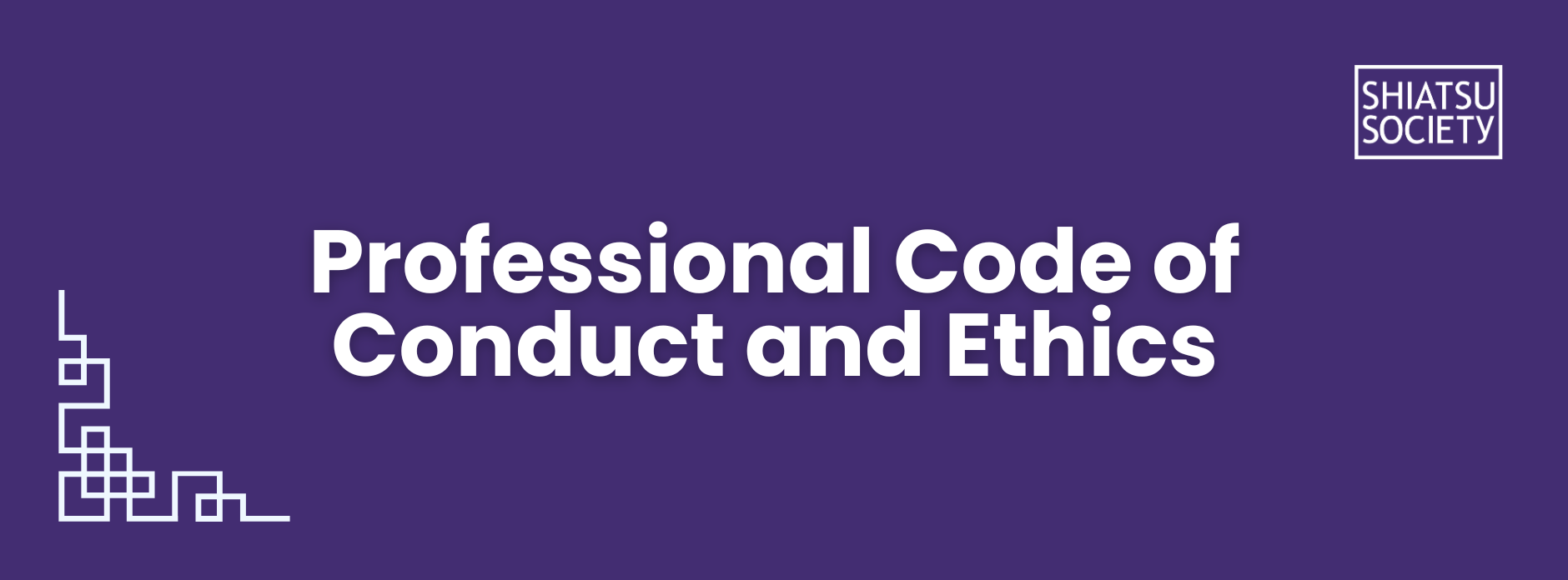
As the leading professional body for Shiatsu in the UK we are on a mission to foster an ethical, professional and compassionate environment for Shiatsu practitioners and enthusiasts. Our aim is to promote and support the highest standards of Shiatsu practice across all communities.
As such, all prospective members of the Shiatsu Society UK must familiarise themselves with our Professional Code of Conduct and Ethics. Each registered member confirms they have done so by signing the New Membership Form. Thereafter, as long as they remain a member of the Society, they must adhere to the Code.
Our Code of Conduct and Ethics has 23 pillars, ensuring safe practice, equal opportunities, consent, confidentiality and high standards of professional conduct. The purpose of the Code is to provide guidance to practitioners in relation to their professional conduct and any issues arising. It is also designed to allow some remedy for those who may have a complaint against a Society member, and to give the public confidence in the practice of Shiatsu as regulated by the Society.
The Code has been developed by members of the community with several decades of experience and dedication to the highest standards of Shiatsu practice.
